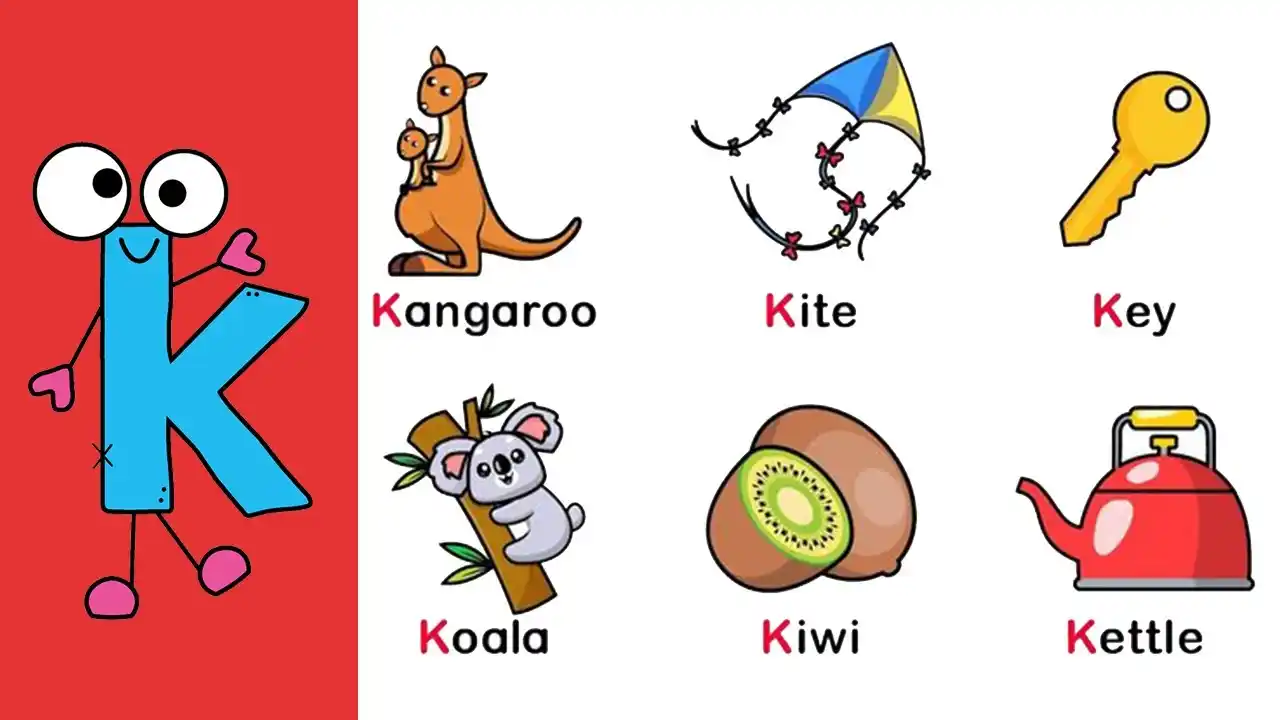Exploring the Kaleidoscope of Words That Start With “K”
The English language is a vast and vibrant tapestry of words, each carrying its shade of meaning, nuance, and history. Among the alphabet’s 26 letters, “K” holds a unique place, often with its sharp sound that can trace its origins back to ancient languages. Words that start with “K” span across various categories from nouns, verbs, and adjectives to more specialized terms in fields such as science, literature, and cultural terminology. Let’s embark on a journey to explore the kaleidoscope of “K” words, uncovering their definitions, uses, and the richness they add to the English language.
The Keystone of “K”: Keywords
- Kindle: To Kindle means to start a fire, but it has also taken on the metaphorical sense of awakening an interest or emotion.
- Knowledge: This noun stands at the core of human curiosity, representing the information, understanding, and skills acquired through experience or education.
- Knack: Knack refers to an acquired or natural skill at performing a task.
- Kudos: Used to express praise and honor received for an achievement.
The Kinetic Energy of “K”: Verbs
- Knit: To knit means to make textiles by looping yarn with needles, symbolizing the creation of connections and the weaving of communities.
- Kneel: This verb represents the act of bending one’s knees, often associated with respect, submission, or worship.
- Knock: To knock is to strike a surface noisily, an action that can demand attention or signal arrival.
The Kaleidoscopic “K”: Adjectives
- Keen: This adjective describes a sharpness of perception or a strong enthusiasm for something.
- Knotty: Something that is knotty is complex and difficult to solve, like a challenging problem.
- Kindred: It refers to similar; having the same belief, attitude, or feeling.
The Kingdom of “K”: Nouns
- Kernel: The kernel is the central, most important part of something, symbolizing the essence or core.
- Keepsake: An item in memory of the person who gave it or originally owned it.
- Keynote: The principal theme of a speech or piece of writing, setting the underlying tone or message.
The Kismet of “K”: Unique Finds
- Kowtow: To show excessive deference or submission, originating from a Chinese custom of touching the ground with the forehead as a sign of respect or submission.
- Kudzu: A plant native to Asia that is used for soil improvement and erosion control, but is also known for its rapid growth and ability to cover landscapes quickly.
- Kaleidoscope: A tube containing mirrors and pieces of colored glass or paper, whose reflections produce changing patterns that are visible through an eyehole when the tube is rotated. It metaphorically represents constant change and the beauty of diversity.
Conclusion
The letter “K” kicks off a myriad of words that are as diverse as they are dynamic. From the warmth of a kindled fire to the complexity of knotty problems, words that start with “K” enrich our conversations and writings, offering both challenge and charm. They encapsulate many human experiences, emotions, and the world around us, proving that even the most seemingly insignificant letter can hold a universe of meaning. As we continue to explore the English language, let’s appreciate the unique contributions of each letter, including the knowledgeable and kingly “K.”
This exploration barely scratches the surface of the vast vocabulary beginning with “K.” Each word carries its history, connotations, and applications, reflecting the richness of the English language.
Words That Start With Z
Here are some interesting words that start with Z. “Zebra” is a well-known animal with black and white stripes. Another example is “zeal,” which means great enthusiasm or passion. You might also hear the word “zen,” which refers to a state of calm and meditation. “Zest” means great energy or enjoyment, often associated with a love for life. Finally, “zip” can mean speed or energy, as in “zip through a task.” These are just a few examples of words that start with Z, each adding something unique to our vocabulary.






[…] Words that start with k […]